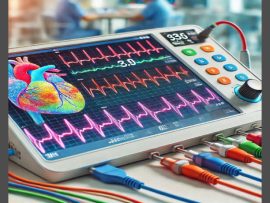Abstract Purpose Intranasal insulin administration may improve cognitive function in patients with dementia and may prevent cognitive problems after surgery. Although the metabolic effects of intranasal insulin in non-surgical patients have been studied, its influence on glucose..
Read MoreAbstract Introduction Glycemic control is essential for improving the prognosis of cardiac surgery, although precise recommendations have not yet been established. Under a constant blood glucose level, the insulin infusion..
Read MoreAbstract Diabetes and hyperglycemic events in cardiac surgical patients are associated with postoperative morbidity and mortality. The causes of , the abnormal fluctuations in concentrations, in the include surgical stress, surgical techniques, medications..
Read MoreAbstract Study Objective To determine the association of practitioner dashboard feedback of intraoperative and temperature control on maintenance of and normothermia. Design Retrospective review. Setting Single institution. Patients Patients over the age of..
Read MoreAbstract Background No previous research has specifically investigated the relationship between postoperative glycemic variability (GV) and acute kidney disease (AKD) in patients undergoing cardiac surgery. In this study, several methods..
Read MoreAbstract Perioperative impairment of glycaemic control significantly increases the risk of major postoperative complications. The use of continuous glucose monitoring (CGM) has demonstrated benefits in glycaemic control, but its use..
Read More






